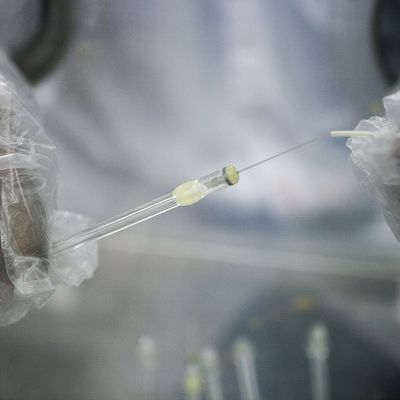
Doctors in India have developed a new male-contraceptive injection that would provide men with years of fertility control and has been found to be safe, effective, and easy to use in human trials. But although the injection would ease the contraceptive burden on women and cut down on birth-control costs, drugmakers are showing “little interest” in the discovery.
As Bloomberg reports, the new male-birth-control method — called reversible inhibition of sperm under guidance (RISUG) — is 98 percent effective at preventing pregnancy, doesn’t have any major side effects, and could cost as little as $10 in poor countries. Invented by Sujoy Guha, a biomedical engineer in India, RISUG uses a polymer gel that’s injected into sperm-carrying tubes in the scrotum and acts as a buffer to sperm. It can be reversed with a second shot that breaks down the gel, and after years of successful human trials, scientists are set to submit it for regulatory approval in India soon.
The affordable method could take a sizable chunk out of the $10 billion market for female contraceptives and the $3.2 billion market for condoms worldwide, two areas that are currently dominated by pharmaceutical giants Pfizer Inc., Bayer AG, and Merck & Co. That could be why drugmakers aren’t rallying to support RISUG. (Representatives for those companies also told Bloomberg that they aren’t actively researching male birth control.) In fact, only a U.S. nonprofit has stepped up to help with the development of the technology so far.
Per Bloomberg:
“The fact that the big companies are run by white, middle-aged males who have the same feeling — that they would never do it — plays a major role,” said Herjan Coelingh Bennink, a gynecology professor who helped develop the contraceptives Implanon and Cerazette as head of research and development in women’s health for Organon International from 1987 to 2000. “If those companies were run by women, it would be totally different.”
The burden of contraception largely falls on the shoulders of women across the world. According to the World Health Organization, nearly 225 million women around the world have unmet contraceptive needs, and a United Nations report found that almost 60 percent of married women used birth-control pills or another form of modern contraception in 2015. On the other hand, only 8 percent of women in the UN report relied on their male partner using condoms.





